Bash If Variable Is Empty
Declaring and Assigning Variables in Bash
Before diving into handling empty variables, let’s quickly recap how variables are declared and assigned in Bash. In Bash, variables are not explicitly declared with a specific data type. You can simply assign a value to a variable by using the assignment operator “=”, followed by the value. For example:
“`bash
name=”John Doe”
message=”Hello, $name!”
“`
In the above example, we declared two variables, `name` and `message`, and assigned values to them. The value of `name` is “John Doe”, while the value of `message` is “Hello, John Doe!”.
Handling Empty Variables in Bash
Checking for empty variables is important to ensure that your script behaves as expected and avoids any potential errors or incorrect results. Empty variables can occur in various scenarios, such as when a user does not provide input or when a variable is not set for any other reason. Scripts that rely on variables being set can lead to unexpected behavior or even crashes if empty variables are not handled appropriately.
Another potential issue arises when a variable appears empty but actually contains whitespace characters. It is crucial to differentiate between truly empty variables and those that only contain whitespace, as they may require different handling.
Using if Statements to Check if a Variable is Empty
Bash provides the `if` statement for conditional execution of commands or blocks of code. Checking if a variable is empty can be done using an `if` statement combined with a conditional expression. The syntax for this is as follows:
“`bash
if [ -z “$variable” ]; then
# Code to execute if the variable is empty
fi
“`
In the above example, the `-z` flag checks if the variable is empty. If it is, the code inside the `if` block will be executed. You can replace the code comment with the desired actions or commands to be executed if the variable is empty.
Checking for White Space and Null Values
While the previous method checks for empty variables, it does not differentiate between truly empty variables and those that contain whitespace. To account for this, you can use additional techniques to check for whitespace or null values. One approach is to use the `trim` function to remove leading and trailing whitespace characters before checking if the variable is empty:
“`bash
trimmed_variable=”${variable#”${variable%%[![:space:]]*}”}”
trimmed_variable=”${trimmed_variable%”${trimmed_variable##*[![:space:]]}”}”
if [ -z “$trimmed_variable” ]; then
# Code to execute if the variable is empty or contains only whitespace
fi
“`
In the above example, the `trim` function is applied to the variable `variable` to remove any leading and trailing whitespace characters. The resulting trimmed value is then checked for emptiness using the `-z` flag.
Implementing Robust Validation for Empty Variables
To ensure robust validation of empty variables, you can employ additional techniques and validations. For more complex checks, you can use conditional statements and logical operators. Here’s an example that checks if a variable is empty or contains only whitespace:
“`bash
if [ -z “$variable” ] || [ -z “${variable//[[:blank:]]/}” ]; then
# Code to execute if the variable is empty or contains only whitespace
fi
“`
In the above example, the `-z` flag is used to check if the variable is empty. Additionally, the `${variable//[[:blank:]]/}` syntax removes all whitespace characters from the variable and checks if the resulting value is empty. Both conditions are linked using the logical `||` (OR) operator.
Error Handling and Reporting Empty Variables
When working with bash scripts, error handling is crucial. When a variable is empty, it’s important to provide meaningful error messages to identify and troubleshoot issues. You can implement error handling by using the `echo` command to display custom error messages within the `if` block:
“`bash
if [ -z “$variable” ]; then
echo “Error: The variable is empty.”
# Additional error handling code
fi
“`
In addition to displaying error messages, it can be useful to log empty variable errors for debugging and future analysis. You can redirect the error messages to a log file using the `>>` operator:
“`bash
if [ -z “$variable” ]; then
echo “Error: The variable is empty.” >> error.log
# Additional error handling code
fi
“`
Alternative Approaches to Handling Empty Variables
Beyond the techniques mentioned earlier, there are alternative solutions for handling empty variables in Bash. One approach is to use built-in functions and features specifically designed for handling empty values. For example, the `:-` operator can be used to provide a default value if a variable is empty:
“`bash
default_value=”${variable:-default}”
“`
In the above example, if the variable `variable` is empty, the value of `default_value` will be set to “default”. Otherwise, `default_value` will take the value of `variable`.
Common Pitfalls and Troubleshooting Empty Variables
When handling empty variables in Bash, it’s important to be aware of common mistakes and errors that may occur. One common pitfall is forgetting to enclose variables in double quotes when using them in conditions or assignments. Failure to do so can lead to unexpected behavior. For example, consider the following code snippet:
“`bash
if [ -z $variable ]; then
# Code to execute if the variable is empty
fi
“`
In this case, if the variable contains whitespace or special characters, the conditional expression may produce incorrect results. To avoid this, always ensure that variables are enclosed in double quotes, like this:
“`bash
if [ -z “$variable” ]; then
# Code to execute if the variable is empty
fi
“`
Best Practices for Working with Empty Variables in Bash
To summarize, here are some best practices to follow when working with empty variables in Bash:
1. Always check for empty variables to ensure script reliability and avoid unexpected errors.
2. Differentiate between truly empty variables and those that contain whitespace.
3. Use conditional statements with logical operators to perform complex checks if necessary.
4. Provide meaningful error messages and consider logging empty variable errors for debugging purposes.
5. Explore alternative solutions, such as utilizing built-in functions and operators for default values.
6. Always enclose variables in double quotes to avoid potential issues with whitespace or special characters.
By following these best practices, you can ensure reliable and secure script execution, optimize code readability and maintainability, and handle empty variables effectively in your Bash scripts.
FAQs
Q: How do I check if a variable is empty in Bash?
A: Use the `-z` flag in an `if` statement to check if a variable is empty. For example:
“`bash
if [ -z “$variable” ]; then
# Code to execute if the variable is empty
fi
“`
Q: How do I check if a variable is not empty in Bash?
A: Use the `-n` flag in an `if` statement to check if a variable is not empty. For example:
“`bash
if [ -n “$variable” ]; then
# Code to execute if the variable is not empty
fi
“`
Q: How do I check if a variable is empty or contains only whitespace in Bash?
A: Use additional techniques, such as trimming the variable or removing whitespace, and then check for emptiness. For example:
“`bash
trimmed_variable=”${variable#”${variable%%[![:space:]]*}”}”
trimmed_variable=”${trimmed_variable%”${trimmed_variable##*[![:space:]]}”}”
if [ -z “$trimmed_variable” ]; then
# Code to execute if the variable is empty or contains only whitespace
fi
“`
Q: How do I provide a default value if a variable is empty in Bash?
A: Use the `:-` operator to provide a default value if the variable is empty. For example:
“`bash
default_value=”${variable:-default}”
“`
Q: How can I avoid issues with empty variables in Bash?
A: Always enclose variables in double quotes, especially when using them in conditions or assignments, to avoid potential issues with whitespace or special characters.
Q: What are the risks of using empty variables in scripts?
A: Using empty variables without proper handling can lead to unexpected behavior, errors, and security vulnerabilities in your script. It is important to check for empty variables and handle them appropriately to ensure script reliability and security.
In conclusion, handling empty variables in Bash scripts is a critical aspect of ensuring script reliability and avoiding unexpected errors. By employing techniques such as using `if` statements, checking for whitespace, and providing default values, you can confidently handle empty variables and optimize your Bash scripts for reliable and secure execution.
Check If A Variable Is Set/Empty In Bash
How To Check If Bash Variable Is Empty?
In Bash scripting, variables are fundamental elements used to store and manipulate data. When working with variables, it is crucial to determine whether a variable contains any value or is empty. This distinction plays a vital role in ensuring the correct execution of scripts, as different actions may be required based on the variable’s content. In this article, we will explore various techniques to check if a Bash variable is empty, providing you with a comprehensive understanding of this essential concept in scripting.
Checking if a Bash variable is empty:
There are several methods available to check whether a Bash variable is empty. Each method is designed to cater to different scenarios, allowing you to choose the most suitable approach for your specific needs. Let’s delve into some of these techniques:
1. Using the -z option:
One of the simplest methods to check if a Bash variable is empty is by using the -z option. The -z option checks if the length of the variable is zero, which indicates that the variable is empty. Here’s an example:
“`bash
if [ -z “$variable” ]; then
echo “The variable is empty”
else
echo “The variable is not empty”
fi
“`
By enclosing the variable in double quotes, we ensure that even if the variable contains spaces, the check will still be accurate. The double quotes also prevent potential issues with special characters that might be included in the variable’s value.
2. Using the -n option:
Conversely, the -n option checks whether the variable is non-empty. If the variable has a length greater than zero, the -n option returns true. Consider the following example:
“`bash
if [ -n “$variable” ]; then
echo “The variable is not empty”
else
echo “The variable is empty”
fi
“`
In this case, if the variable has any value, including whitespace characters, the check will result in a non-empty variable.
3. Checking the length of the variable:
Another approach to checking if a Bash variable is empty is by directly examining its length. A variable is considered empty if its length is zero. Here’s how it can be accomplished:
“`bash
if [ ${#variable} -eq 0 ]; then
echo “The variable is empty”
else
echo “The variable is not empty”
fi
“`
By using the `${#variable}` syntax, the length of the variable is returned, which is then compared to zero using the `-eq` operator.
Frequently Asked Questions (FAQs):
Q1: Can I use a null character to check if a Bash variable is empty?
A1: No, null characters cannot be used to determine if a Bash variable is empty. Null characters are considered part of the variable’s content and do not represent emptiness.
Q2: How should I handle variables that may contain both spaces and value?
A2: Enclosing the variable in double quotes is a good practice to handle variables containing spaces. This ensures that the variable is treated as a single entity and preserves its value during variable checks.
Q3: Are there any performance differences between the different methods of checking variable emptiness?
A3: In general, the performance differences are negligible. However, using the `-n` or `-z` options might offer a slight advantage in terms of readability and simplicity.
Q4: How can I combine emptiness checks with other conditions within an if statement?
A4: By using logical operators such as `&&` (and) or `||` (or), you can combine emptiness checks with other conditions. For instance: `if [ -z “$variable” ] && [ “$another_variable” -gt 10 ]; then`.
Q5: Can I use these methods to check if a variable is uninitialized?
A5: No, these methods are specifically designed to check if a variable is empty but have undefined behavior when trying to determine if a variable is uninitialized.
In conclusion, correctly identifying whether a Bash variable is empty is crucial for writing robust scripts. The techniques mentioned in this article, such as using the `-z` or `-n` options, as well as checking the length of the variable, can be employed to achieve this task efficiently. By understanding these methods and considering the FAQs, you will be well-equipped to handle variable emptiness effectively in your Bash scripting endeavors.
How To Check If A Variable Is Empty In Shell Script?
When writing shell scripts, it is crucial to handle variables properly to avoid unexpected behavior or errors. One common requirement is to check whether a variable is empty or not before proceeding with certain actions or commands. In this article, we will explore different methods to accomplish this task and provide detailed explanations to ensure a clear understanding.
Checking Variable Emptiness
There are multiple ways to check if a variable is empty or contains no value. We will discuss three widely used methods in shell script programming.
1. Using the -z operator:
The -z operator in shell scripting is used to check if a string is empty. It returns true if the string has zero length; otherwise, it returns false. We can utilize this operator to check the emptiness of a variable by placing it within square brackets immediately after the variable name.
Here’s an example:
“`shell
if [ -z “$variable” ]; then
echo “Variable is empty!”
else
echo “Variable is not empty.”
fi
“`
The code above will check whether the variable is empty and display an appropriate message accordingly.
2. Using the -n operator:
Similar to the -z operator, the -n operator is employed to check if a string is not empty. It returns true when the string length is greater than zero; otherwise, it returns false. By utilizing this operator, we can verify if a variable contains any value. The -n operator is also placed within square brackets, as demonstrated below:
“`shell
if [ -n “$variable” ]; then
echo “Variable is not empty!”
else
echo “Variable is empty.”
fi
“`
3. Using the length comparison:
In shell scripting, we can also compare the length of a string with zero to determine if it is empty. This approach involves using the string length function and comparing it with zero using the -eq operator.
Here’s an example:
“`shell
if [ ${#variable} -eq 0 ]; then
echo “Variable is empty!”
else
echo “Variable is not empty.”
fi
“`
The ${#variable} syntax obtains the length of the variable, and -eq compares it with zero. The script will produce the appropriate message based on the variable’s emptiness.
Frequently Asked Questions (FAQs):
Q1. What does it mean for a variable to be empty in shell scripting?
A variable is considered empty in shell scripting if it does not hold any value or has zero length. An empty variable is distinct from a variable that contains spaces or other non-printable characters.
Q2. How can I assign an empty value to a variable in shell scripting?
To assign an empty value to a variable, you can directly set it using the assignment operator (=) without providing any value. For example:
“`shell
variable=””
“`
Q3. What is the difference between an unset variable and an empty variable?
An unset variable does not exist or has not been initialized. It does not hold any value, and accessing it typically leads to an error. In contrast, an empty variable exists and has been initialized, but it does not contain any value. Accessing an empty variable does not result in an error.
Q4. Can I check if a variable is empty by comparing it to an empty string?
Yes, you can compare a variable to an empty string by using the double equals (==) comparison operator. Here’s an example:
“`shell
if [ “$variable” == “” ]; then
echo “Variable is empty!”
else
echo “Variable is not empty.”
fi
“`
However, it is important to note that this method may not be POSIX-compliant and could lead to unexpected results on different shell implementations.
Q5. How can I check if a variable is both empty and unset?
To ensure that a variable is both empty and unset, you can combine the -z operator with the -v operator, which checks if a variable is set. The following example demonstrates this:
“`shell
if [ -z ${variable+x} ]; then
echo “Variable is empty and unset!”
else
echo “Variable is either set or not empty.”
fi
“`
In the above code, ${variable+x} expands to x if the variable exists (is set) and to nothing if the variable does not exist (is unset). By checking if the expanded value is empty using the -z operator, we can ensure the variable’s emptiness and unset state.
Conclusion:
Checking if a variable is empty is a crucial step in shell scripting. By employing the -z and -n operators, along with length comparisons, you can reliably determine the emptiness or non-emptiness of a variable. Understanding the differences between unset and empty variables is also vital. By leveraging the methods presented in this article, you can handle variables appropriately in your shell scripts.
Keywords searched by users: bash if variable is empty Check variable is number bash, Bash if else, If var bash, Bash set variable null, Check if variable is set in Bash, Check empty shell script, String is null or empty bash, Bash if and
Categories: Top 47 Bash If Variable Is Empty
See more here: nhanvietluanvan.com
Check Variable Is Number Bash
In Bash scripting, it is often necessary to determine whether a variable contains a numeric value. This can be particularly useful when validating user input or performing calculations. Fortunately, there are several methods available to check if a variable is a number in Bash, including using regular expressions, conditional statements, and built-in shell functions. In this article, we will delve into each of these approaches and provide examples to demonstrate their usage.
Using regular expressions:
Regular expressions are a powerful tool for pattern matching in Bash. By leveraging regular expressions, we can check if a variable contains only numeric characters. One way to accomplish this is by using anchors and character classes. Consider the following code snippet:
“`
if [[ $variable =~ ^[0-9]+$ ]]; then
echo “Variable is a number”
else
echo “Variable is not a number”
fi
“`
In the above example, the regular expression ^[0-9]+$ checks that the variable consists of one or more numeric characters from beginning (^) to end ($) of the string. If the match is successful, the variable is considered a number; otherwise, it is not.
Using conditional statements:
Another approach to determine if a variable is a number is by utilizing conditional statements. Bash provides convenient conditional operators that can be used for numerical comparisons. We can take advantage of this feature by attempting a conversion of the variable to a number and checking if the conversion is successful. Here’s an example:
“`
if (( variable == variable )); then
echo “Variable is a number”
else
echo “Variable is not a number”
fi
“`
In the above code, (( variable == variable )) checks if the variable is equal to itself, which will only be true if the variable contains a valid numeric value. If the condition is true, the variable is considered a number; otherwise, it is not.
Using built-in shell functions:
Bash also provides built-in functions that can help us determine whether a variable is a number. One such function is `expr`, which evaluates given expressions. By using the `expr` function with the variable in question, we can check if it generates a valid numerical output. Consider the following example:
“`
output=$(expr “$variable” + 1 2>/dev/null)
if [ $? -eq 0 ]; then
echo “Variable is a number”
else
echo “Variable is not a number”
fi
“`
In the above code, `expr “$variable” + 1 2>/dev/null` attempts to add 1 to the variable and redirect any error output to `/dev/null`. We then check the exit code of `expr` using `[ $? -eq 0 ]` to determine if the output was successful. If the exit code is 0, it means that the variable is a number.
FAQs:
Q: Can these methods determine if a variable is a floating-point number?
A: No, these methods primarily check if a variable contains an integer. To check for a floating-point number, you may need to modify the regular expression or use alternative approaches, such as pattern matching.
Q: What happens if the variable contains leading or trailing whitespace characters?
A: Both the regular expression method and the conditional statements method will consider the variable as a non-number if it contains leading or trailing whitespace characters. To handle such cases, you can trim the whitespace using the `trim()` function or preprocess the variable.
Q: What if the variable is empty?
A: The regular expression method and the conditional statements method will categorize an empty variable as a non-number. You can add an additional check for an empty variable before applying these methods if you want to handle empty values differently.
Q: Can these methods determine if a variable is a negative number?
A: Yes, all the methods mentioned above can effectively handle negative numbers. Just ensure that the negative sign is properly placed in the variable.
In conclusion, determining whether a variable contains a numeric value in Bash is crucial for data validation and arithmetic calculations. This article has explored three different methods – regular expressions, conditional statements, and built-in shell functions – to achieve this task. By applying these techniques, you can ensure that your scripts only process the desired numerical input, enhancing their reliability and accuracy.
Bash If Else
Introduction
Bash, which stands for “Bourne Again SHell,” is a popular command-line interpreter and scripting language primarily used in Unix, Linux, and macOS systems. One of its fundamental constructs is the “if else” statement, which allows users to branch their code based on specific conditions. In this article, we will explore the nuances of Bash if else statements and shed light on their various applications. So, let’s dive into the world of Bash scripting and master the art of conditional branching.
Understanding the If Else Syntax
The syntax for an “if else” statement in Bash is as follows:
if [ condition ]
then
# Code to execute if the condition evaluates to true
else
# Code to execute if the condition evaluates to false
fi
The “if” keyword initiates the conditional construct, followed by the condition enclosed in square brackets []. If the condition evaluates to true, the code within the “then” block is executed; otherwise, the code within the “else” block is executed. Finally, the “fi” keyword signifies the end of the branching structure.
Checking Equality
In Bash, the most common condition is checking for equality between variables or constant values. To check if two values are equal, we use the “==” operator within the square brackets []. Here’s an example:
“`bash
#!/bin/bash
name=”John”
if [ “$name” == “John” ]
then
echo “Hello, John!”
else
echo “You are not John.”
fi
“`
In this example, we declare a variable called “name” and assign it the value “John.” The if condition checks whether the value of “name” is equal to “John,” which is true. Therefore, the code within the “then” block is executed, and “Hello, John!” is printed.
Checking for Numeric Comparisons
Bash also allows us to compare numerical values through operators such as ” -eq” (equal), ” -ne” (not equal), ” -gt” (greater than), ” -lt” (less than), ” -ge” (greater than or equal), and ” -le” (less than or equal). Here’s an example:
“`bash
#!/bin/bash
number=10
if [ “$number” -gt 5 ]
then
echo “The number is greater than 5.”
else
echo “The number is not greater than 5.”
fi
“`
In this snippet, we compare the value of the “number” variable with the constant 5. Since it is greater, the code within the “then” block is executed, resulting in the output “The number is greater than 5.”
Multiple Conditions
Bash allows us to combine multiple conditions using logical operators such as “&&” (logical AND) and “||” (logical OR). Let’s consider the following example:
“`bash
#!/bin/bash
age=25
if [ “$age” -gt 18 ] && [ “$age” -lt 30 ]
then
echo “You are between 18 and 30 years old.”
else
echo “You are not in the desired age range.”
fi
“`
This script checks if the value of the “age” variable falls within the range of 18 and 30. If both conditions evaluate to true (logical AND), the code within the “then” block is executed; otherwise, the code within the “else” block is executed.
FAQs about Bash If Else
Q1. Can I use the “if else” construct within a loop?
A1. Yes, the “if else” construct can be placed inside a loop, allowing you to perform conditional operations during each iteration.
Q2. How do I compare strings in Bash?
A2. To compare strings, you can use operators like “==”, “!=”, “>”, “<", etc., within square brackets [].
Q3. Can I nest "if else" statements?
A3. Yes, you can nest multiple "if else" statements inside one another to create complex branching conditions.
Q4. What happens if the condition in the "if" block evaluates to false but there is no "else" block?
A4. In such a case, if the condition is false, the script will simply move on to the next line of code without executing any further instructions.
Q5. Are there any alternatives to the "if else" statement in Bash?
A5. Yes, besides "if else," Bash also offers the "case" statement, which allows you to create more elaborate branching structures.
Conclusion
Conditional branching forms the backbone of any scripting language, and Bash is no exception. Mastering the "if else" construct in Bash opens up a world of possibilities in terms of decision-making and flow control in your scripts. By understanding the syntax and exploring various examples, you can begin creating powerful and intelligent scripts to automate tasks on your Unix, Linux, or macOS systems. Happy scripting!
Images related to the topic bash if variable is empty
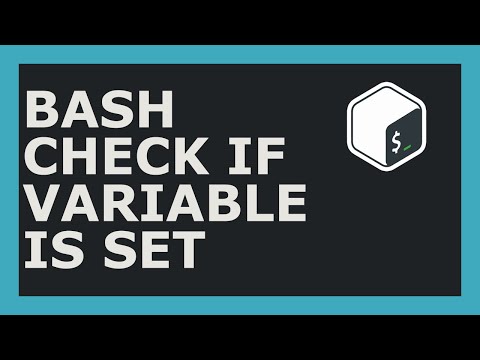
Found 22 images related to bash if variable is empty theme






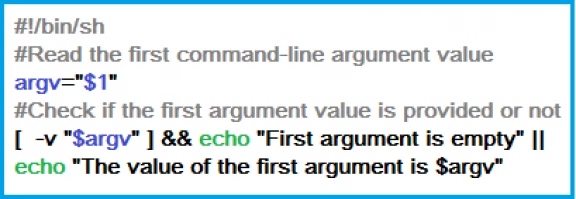





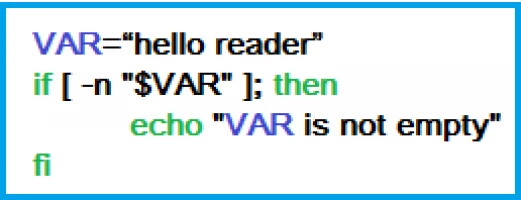
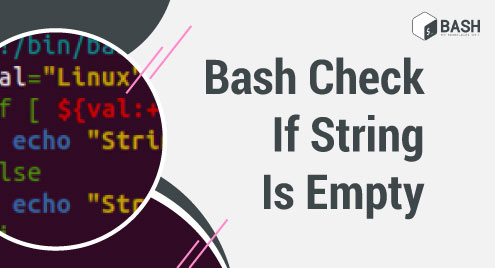




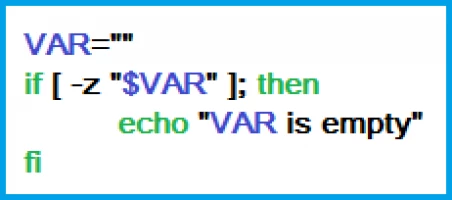




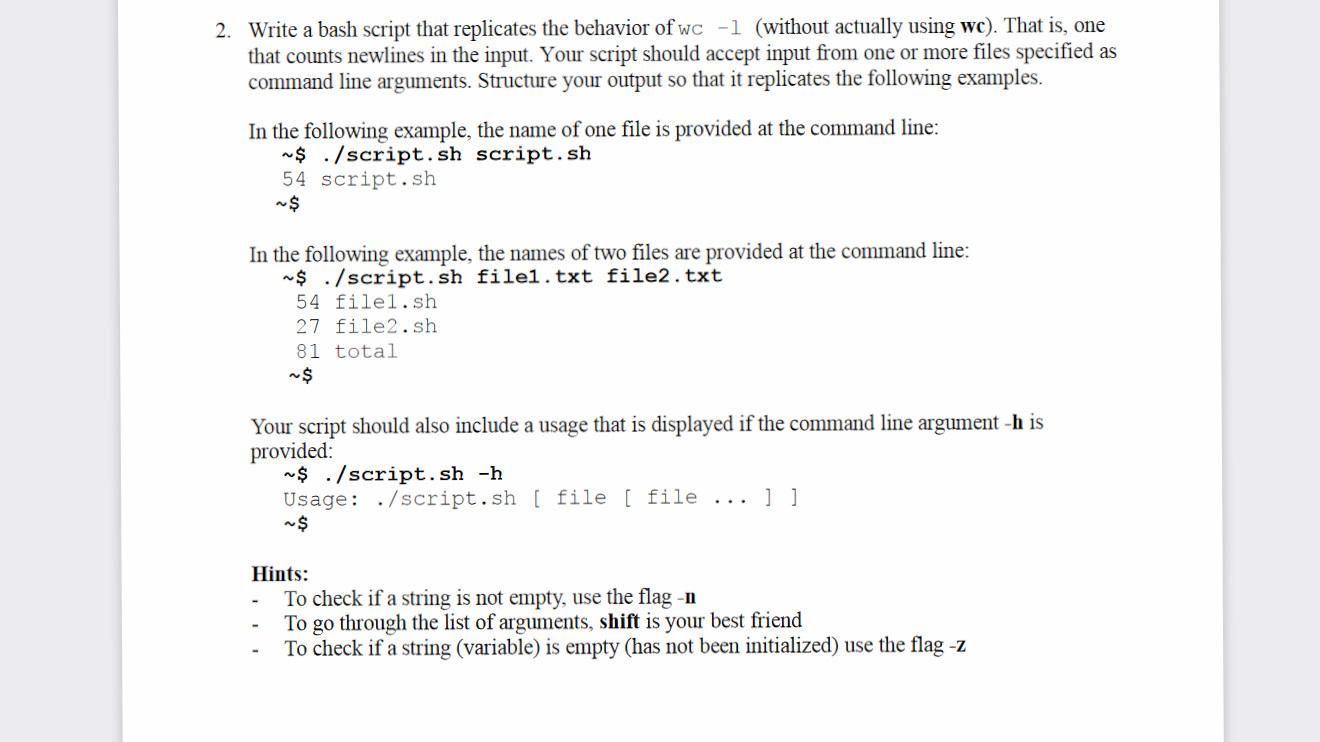


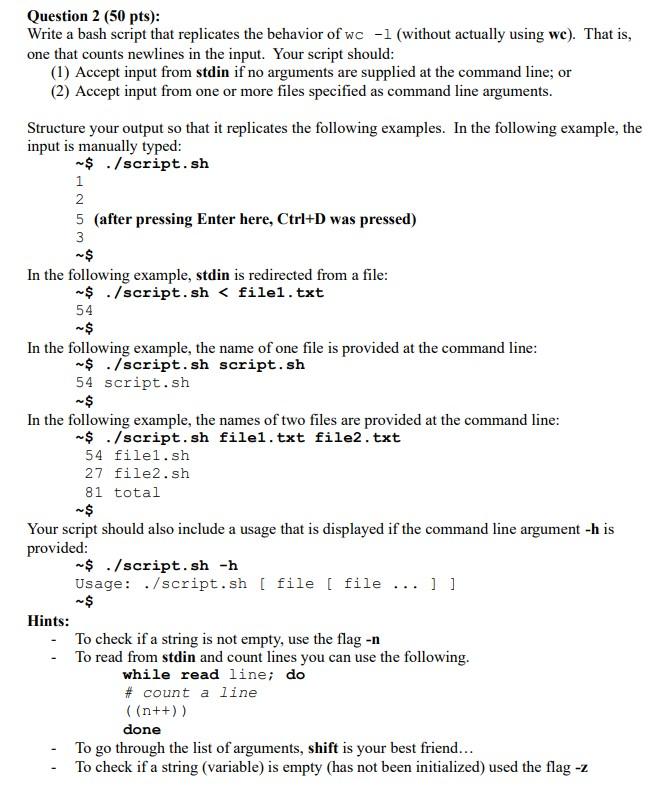
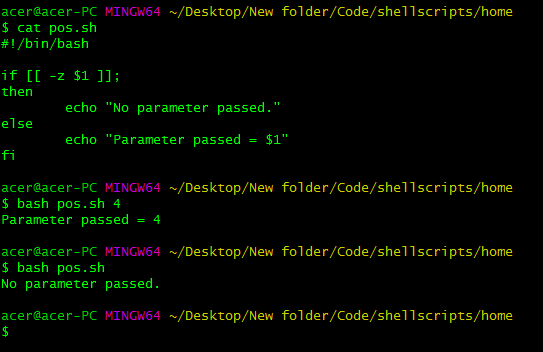





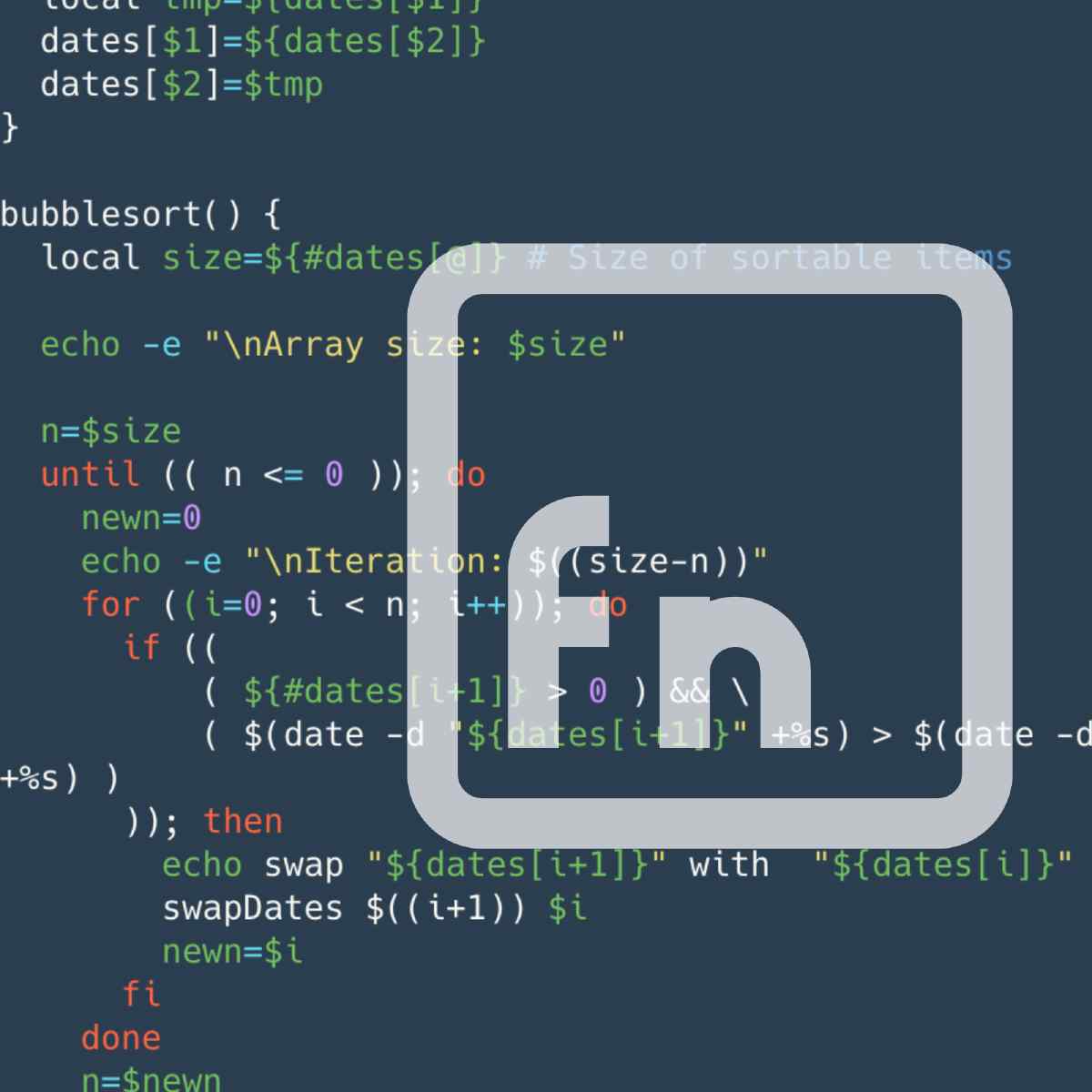


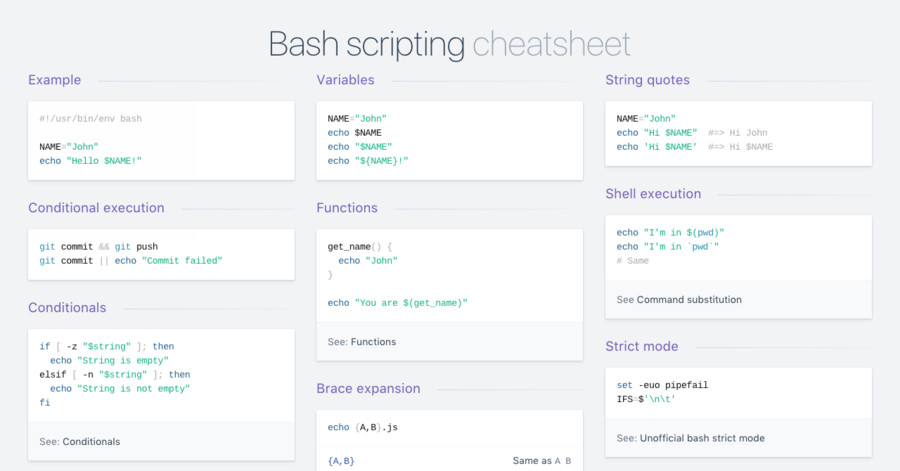





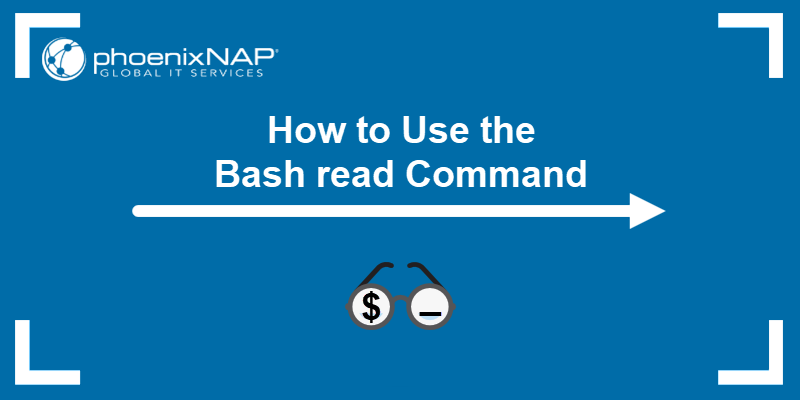
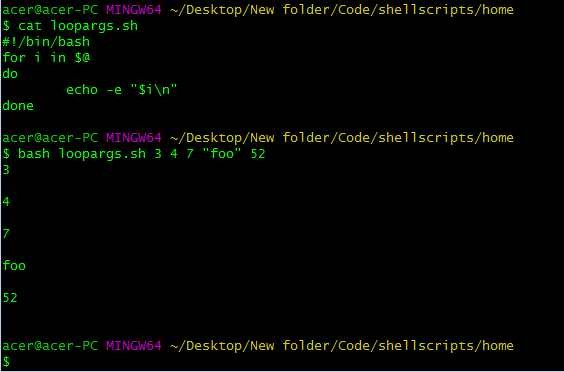



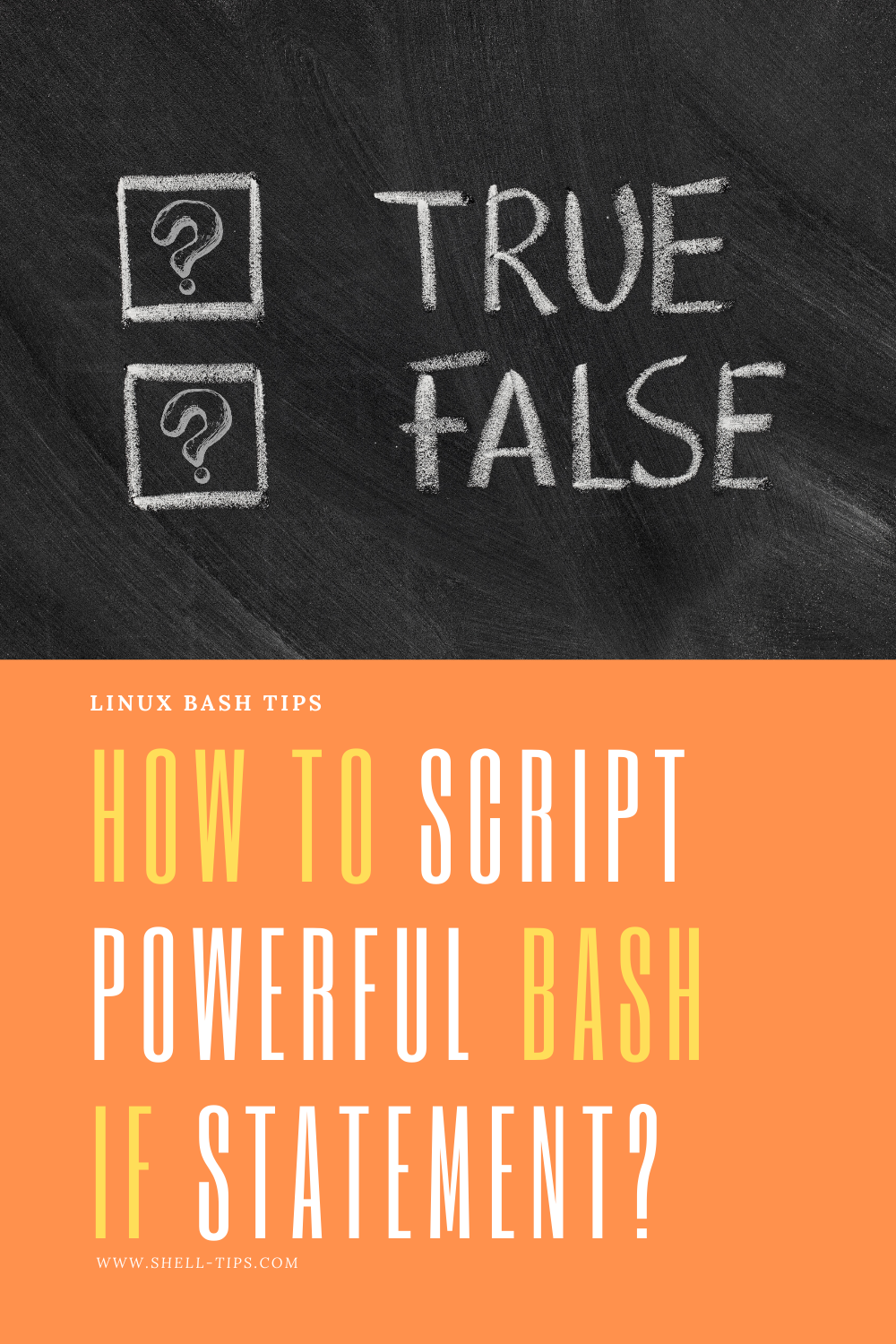
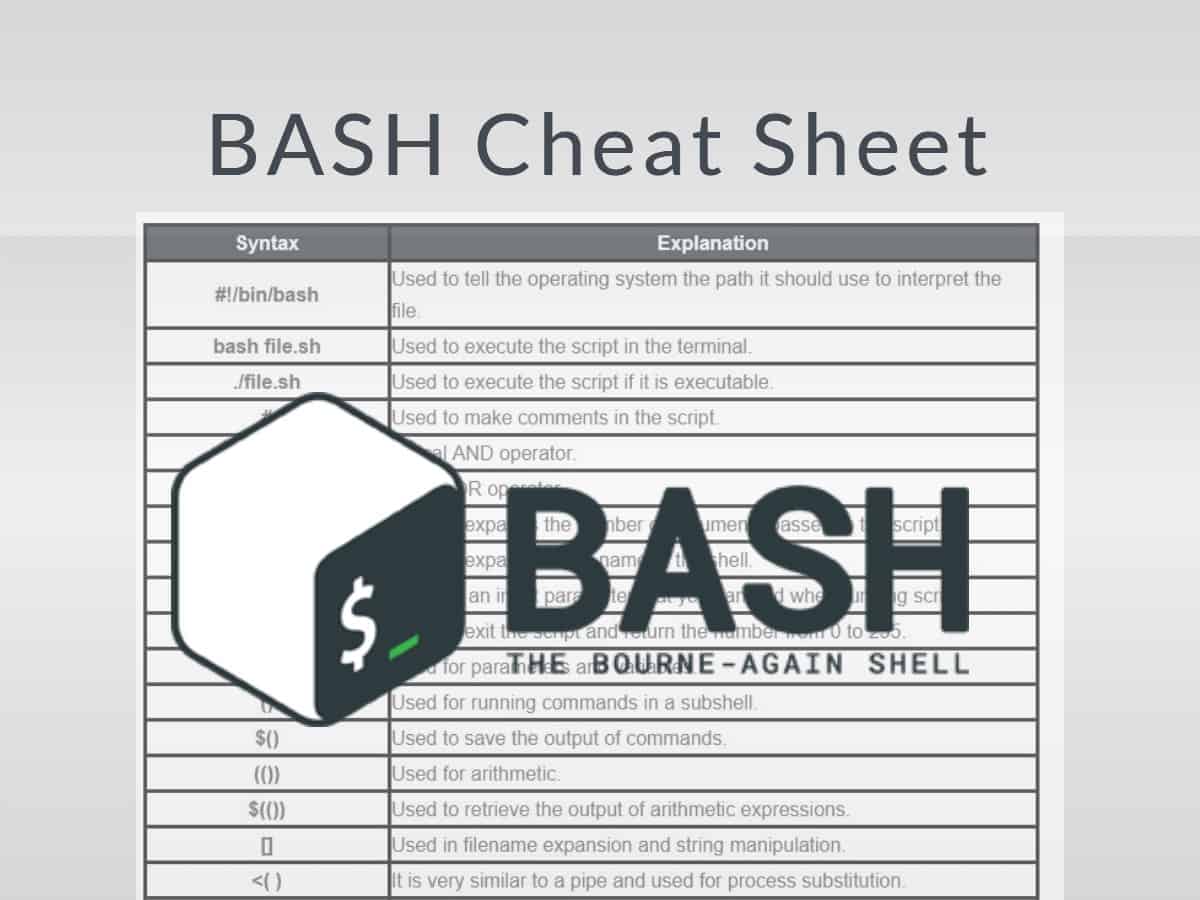
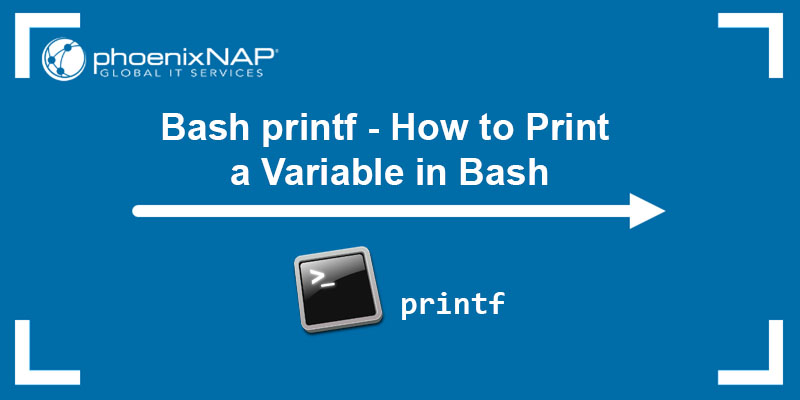
Article link: bash if variable is empty.
Learn more about the topic bash if variable is empty.
- How To Bash Shell Find Out If a Variable Is Empty Or Not
- How to determine if a bash variable is empty? – Server Fault
- Determine Whether a Shell Variable Is Empty – Baeldung
- Check If Variable Is Empty in Bash [4 Ways] – Java2Blog
- How To Bash Shell Find Out If a Variable Is Empty Or Not
- Determine Whether a Shell Variable Is Empty – Baeldung
- empty – Manual – PHP
- Bash Scripting – How to check If variable is Set – GeeksforGeeks
- How to find whether or not a variable is empty in Bash
- Check if Variable Is Empty in Bash | Delft Stack
- Bash Check If String Is Empty – Linux Hint
- How do I assign a value to a BASH variable if that variable is …
- Check if Variable is Empty in Bash – Linux Handbook
- Bash: How to Check if String Not Empty in Linux | DiskInternals
See more: https://nhanvietluanvan.com/luat-hoc/